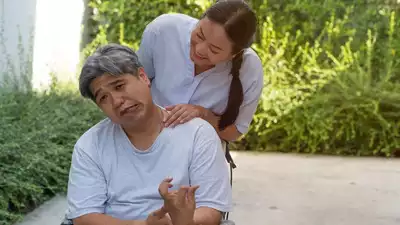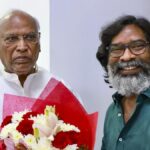
do what Mithun Chakraborty Do you have anything in common with Emilia Clarke (Daenerys Targaryen on Game of Thrones )? No, it wasn’t great dancing skills; it was the fact that both of them were suffering from life-threatening strokes. Fame and money may not stop a person from having StrokeBut raising awareness and taking timely action can help curb its incidence and long-term effects.
They say knowledge is wealth. I can certainly attest that knowledge is good for health. The first step in managing any disease or condition is understanding the warning signs and the steps you must take to mitigate any serious effects. A stroke usually occurs when a person’s brain stops getting the blood and oxygen it needs. This can happen for many reasons, from clogged arteries to diabetes, from heart disease to lifestyle decisions like smoking.
Certain genetic factors cannot be controlled when it comes to preventing stroke. However, the role of a healthy lifestyle cannot be overemphasized. Here are some simple ways to control your risk of stroke:
– Control blood pressure – We all love French fries, but avoid high-cholesterol foods and excess salt. A healthy diet goes a long way toward preventing stroke.
– Control your weight – You don’t have to be a size zero, but obesity does increase your chances of having a stroke.
– Exercise more, drink less – moderation is key! Even taking a short walk every day or cutting back on weekend overeating can go a long way.
– Get checked regularly for diabetes or heart problems – this has all-round benefits for your health. After all, prevention is better than cure.
Sometimes we may do everything right and still have a stroke. In these situations, we must be able to identify what is happening to us or our loved ones and take action quickly (I assure you, this is not a random capital letter to cause panic. This is an acronym that can save lives). Let’s first understand what are the warning signs of stroke:
numbness, weakness, or paralysis, usually on one side of the body
An unusually severe headache, often accompanied by or followed by vomiting, dizziness, or sudden loss of consciousness
Vision problems, including blurred vision, darkening, or double vision
Unsteady walking or coordination
This is where “move fast” comes in – face, arms, words and time. Even if these symptoms seem to lessen or disappear shortly after they occur, it’s a good idea to get them checked out:
– If a person’s face droops when he smiles or talks
– If a person can raise both arms at the same time without one arm falling over
– If a person’s speech is not affected and they can repeat a simple phrase without slurring
– If the above situation is not satisfactory, time is of the essence and the person must be taken to the hospital immediately
After a stroke, ongoing care is necessary to rehabilitate the patient and help them recover. Typically, rehabilitation is based on repetition or special focus on areas of improvement. However, depending on the severity of the stroke or the specific abilities affected, specialized rehabilitation plans may be developed for different patients. Physical activity during rehabilitation may include mobility or motor skill training, or treatments to relieve muscle tension and improve function of the affected limb. Additionally, technology-assisted physical activities such as electrical stimulation, robotics, and virtual reality gaming can play a huge role in rehabilitation without the need for dedicated professionals. The use of speech therapy, psychotherapy, and other medications is also common in post-stroke recovery.
Although strokes are a leading cause of long-term disability, they don’t have to be a death knell. Deaths from stroke have reduced in developed countries and India can follow suit. When we are around someone who may be suffering from a stroke, all we need is to be alert and act quickly. It’s not always easy, but it can be done. As we celebrate the holidays, let us cherish the principles that allow us and our loved ones to live happy, healthy, and long lives.
Author: Dr. Vijay Battina, Director, Atharv Ability Neurorehabilitation Center, Hyderabad
World Stroke Day 2024: Neurologists take a closer look at recurrent stroke and how common it is







